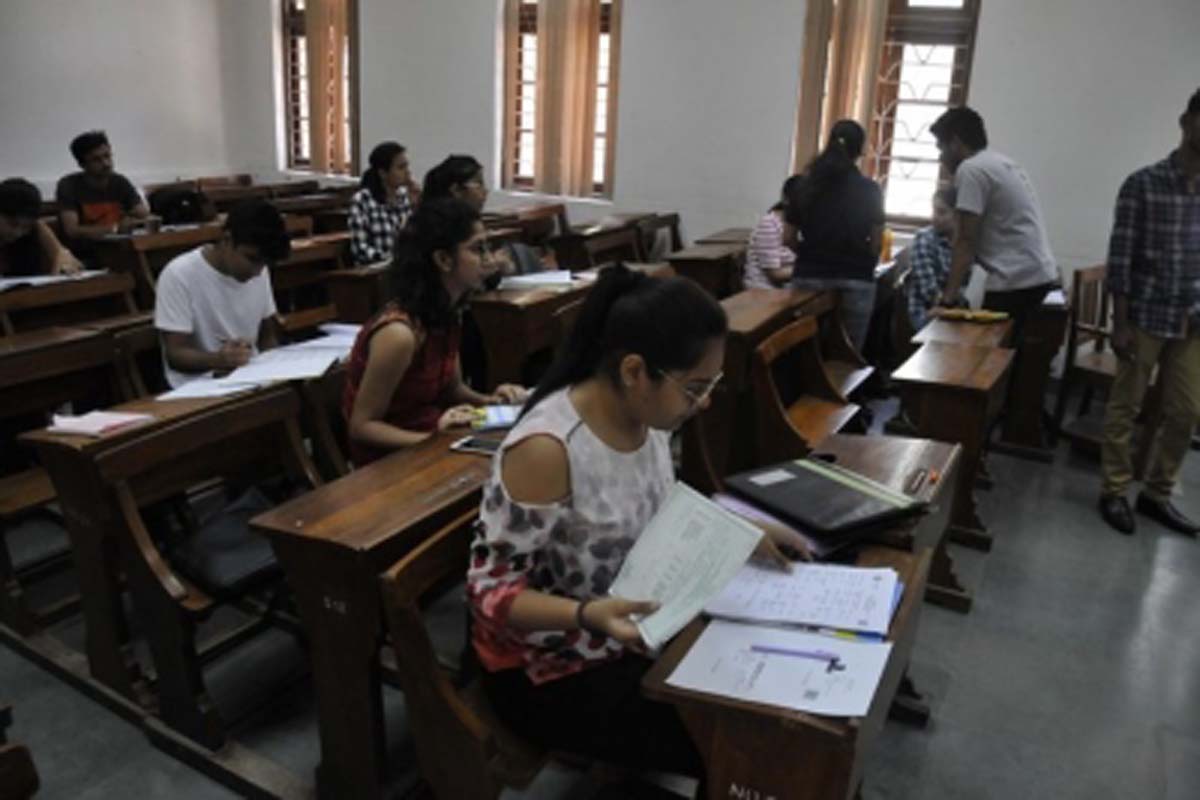
As the 2024 U.S. presidential election approaches, the prospect of ’s comeback to the White House has sparked considerable debate across the political spectrum both domestically and internationally.
While many analysts think fears his potential second term, there are compelling reasons to believe that the 45th president’s return to the Oval Office could significantly benefit China. From his ambiguous stance on defending Taiwan to his history of straining transatlantic relations, which could weaken Europe’s unity and NATO’s resolve, Trump’s policies may inadvertently provide strategic opportunities for Beijing. The former Apprentice host’s return, combined with his domestic controversies might shift the global balance of power and provide China with a stronger foothold to establish a “new world order” on the world stage.

This analysis explores why a Trump presidency could be advantageous for China, and what that means for international relations. After the termination of the Mutual Defense Treaty between the US and Taiwan in 1979, the U.S.
-Taiwan relationship has been governed by the Taiwan Relations Act, which gives America a legal ground to provide the island with defensive support but does not compel the U.S. to defend Taiwan militarily if it is attacked.
On one hand, the Democratic Party and its current party leader, President Biden, have shown unwavering support for Taiwan. When asked in a CBS interview in September 2022, Biden explicitly stated that he would be willing to use force to defend Taiwan, a statement that severely angered Beijing. The recently passed $95 billion foreign military aid package for Israel, Ukraine, and Taiwan in April received overwhelming support from Democrats, compared to the objections from far-right Republicans.
On the other hand, former U.S. President Donald Trump’s approach to Taiwan- by demands for financial compensation for defense support, ambiguity regarding military intervention, and his “America First” policy – presents significant strategic opportunities for China.
Much of the opposition to security assistance in both the House and Senate has come from the MAGA Republicans, who continue to prioritize their movement for the Trump 2.0. By implying that the U.
S. defense of Taiwan might be tied to financial contributions, the 2 Trump presidency would generate uncertainty in the U.S.
-Taiwan relationship. Such ambiguity can compromise Taiwan’s sense of security, increasing its vulnerability and fears of Chinese diplomatic pressure and military threats. If Taiwan believes U.
S. backing is conditional, it might be inclined to make concessions to China in order to avoid confrontation. And the former commander-in-chief could not care less.
The parallels between Trump’s stance on Taiwan and his approach to Ukraine further underscore the risks associated with his policies. Several analysts, including Lili Pike (2024) from Jacques deLisle, director of the University of Pennsylvania’s Center for the Study of Contemporary China and Helen Davidson (2024) from , highlight striking correlations between Trump’s approach to Taiwan and his previous stance on Ukraine. Their analyses suggest that Trump’s transactional and ambiguous foreign policy strategies could have similar implications for Taiwan’s security, as seen with Ukraine.
It is worth noting that the presumptive Republican nominee for president has repeatedly promised to end Russia’s full-scale war against Ukraine within 24 hours if elected but has not publicly justified or elaborated on how he plans to achieve this. It is, however, reported that one plan under consideration involves ceding territory to the Kremlin. There is also serious concern that he might adopt a similar approach to Taiwan.
Recently, the Republican Party’s National Committee approved its 2024 electoral platform on July 8, titled “America First: A Return to Common Sense.” The platform makes no mention of Russia, Ukraine, Taiwan, or the ongoing full-scale invasion. Additionally, Trump’s selected vice-presidential candidate, James David Vance, stated on July 15, “I gotta be honest with you, I don’t really care what happens to Ukraine one way or another,” before the Russian invasion began in February 2022.
This suggests a similar approach to Taiwan could encourage China to test the U.S.’s commitment to Taiwan’s defense, assuming that Trump’s policy might not favor direct military confrontation unless there are clear, tangible benefits to the U.
S. Additionally, Trump’s paradoxical and ambiguous foreign policy on Taiwan could signal broader implications for U.S.
alliances in the Asia-Pacific region, including Japan, South Korea, and the Philippines. This uncertainty risks alienating these key allies, who view Taiwan’s security as essential to regional stability. As a result, this situation provides China with strategic leverage in its efforts to expand its influence over these countries and exert control over Taiwan.
Much like his first term, a second Trump presidency is anticipated to exhibit similar policies. As political analysts from Politico have warned, the potential for a Trump comeback to the Oval Office could rip Europe apart. Trump’s skepticism towards the European Union (EU) and the North Atlantic Treaty Organization (NATO), coupled with his transactional foreign policy approach, raises fears of a weakened Western alliance.
This scenario could strategically benefit China, which has been seeking to expand its global influence. Trump’s stance on NATO and the EU has opened doors for China to increase its leverage over Europe, economically and strategically, while simultaneously reducing Western unity against common threats. During his first term, Trump frequently criticized NATO, labeling it as “obsolete” and questioning the United States’ commitment to defending its allies under the collective defense clause (Article 5).
This ambiguity sowed doubt among NATO members about the reliability of U.S. support in times of crisis.
As reported in 2018, Trump’s repeated threats to withdraw the U.S. from NATO created uncertainty and fear of a strategic vacuum that adversaries like Russia and China could exploit.
John Bolton, Trump’s former national security adviser, warned that NATO would be in serious jeopardy if Trump returned to power, echoing concerns that Trump’s foreign policy could lead to a formal U.S. exit from the alliance.
Trump’s critical stance towards NATO and his transactional approach to international alliances have significant implications for China’s strategic interests. In a report by , the former U.S.
president’s decision to withdraw nearly 12,000 troops from Germany was seen as a move that could weaken NATO’s deterrence capabilities, which indirectly emboldened China. A less robust NATO allows China to assert its influence more aggressively in regions like the South China Sea and matters related to cybersecurity, knowing that a divided West lacks the cohesion to effectively counter its actions. Regarding trade, despite Donald Trump’s threats to impose significant tariffs on Chinese goods—tripling existing rates if re-elected and extending tariffs up to 20% on most imports—the economic consequences of such measures are typically counterproductive.
Tariffs generally harm both the imposing and targeted countries, leading to increased prices, reduced consumer choices, and lower productivity levels. As Scott Lincicome, head of Cato’s Herbert A. Stiefel Center for Trade Policy Studies, pointed out, Trump’s tariff strategy is “economically ignorant, geopolitically dangerous, and politically misguided.
” Based on their experience with his previous term, China is fully prepared to counter any hardline policies Trump might bring forward. In fact, it is clearly evident that U.S.
policy changes toward China under Trump’s possible second term would likely have a diminished impact now. In response to the possibility of high tariffs, strategically, local governments across China have increased their manufacturing investments and are diversifying export channels. Moreover, Trump’s aggressive tariff policies have the unintended consequence of pushing the world’s second-largest economy and Europe closer together.
By imposing tariffs on European goods, Trump has strained economic relations with key EU partners, thereby weakening the transatlantic alliance. This discord creates a vacuum that China has been quick to exploit, presenting itself as a more stable and reliable trading partner for Europe. As economic ties between China and Europe strengthen, the EU could find itself increasingly dependent on the Belt and Road pioneer for economic stability.
This shift not only reduces the West’s leverage over China but also provides Beijing with a strategic advantage to enhance its position as a dominant global economic power. China will enjoy Trump’s “America First” policy, which prioritizes short-term U.S.
interests over long-term multilateral commitments in several strategic ways. Trump’s approach, including his refusal to guarantee NATO protection unless members meet financial obligations, risks undermining Western unity and emboldening adversarial powers like Russia and China. In February 2024, the former president’s remarks, suggesting that Russia should “go ahead and do whatever the hell they want” if NATO members fail to meet his financial demands, highlight a dangerous shift towards isolationism.
This remark potentially invites Russia to exploit a weakened NATO and distracts Western attention from China’s assertive actions in Asia. This comment could also signal to China that it might face minimal repercussions for aggression towards Taiwan or other U.S.
allies in Asia. Additionally, the growing Russia-China alliance complicates European security, as Philippe Jacqué and Virginie Malingre noted in . Trump’s ambivalence towards NATO, coupled with increased Russian aggression towards Ukraine, could weaken Western responses and inadvertently advance China’s strategic goals.
Foreign policy experts like Dan Caldwell and retired Army Lt. Gen. Keith Kellogg warn that Trump’s approach might prompt European nations to reconsider their reliance on the U.
S., potentially seeking alternative security partnerships or developing independent defense strategies. Robin Niblett, former director of Chatham House, adds that such a realignment could undermine global democratic unity, allowing Russia and China to exploit the weakened Western cohesion to expand their geopolitical influence.
In recent years, former President Donald Trump’s controversial actions and rhetoric have inadvertently bolstered China’s geopolitical stance. The January 6, 2021, Capitol insurrection, one of the darkest moments in U.S.
history, provided China with no better image to exploit. By highlighting the internal instability and vulnerability exposed during the attack, China could argue that the U.S.
forfeits its moral authority to lecture other nations on stability and the rule of law. This stark contrast with China’s self-image as a stable, centralized power allowed Chinese officials to emphasize the inherent chaos in liberal democracies, reinforcing their narrative of political stability and efficiency. Additionally, Trump’s heavy-handed response to domestic protests, such as those during the BLM movement, enabled China to deflect criticism of its own repression in Hong Kong and elsewhere by drawing parallels with U.
S. measures. Furthermore, allegations that Trump used state mechanisms to target political opponents undermined the U.
S. stance against political repression. This would render the U.
S. hypocritical if it were to criticize China’s actions against dissidents and activists. This perceived hypocrisy has been leveraged by Chinese officials to argue that U.
S. political freedom is selectively applied. Moreover, Trump’s unfounded claims of widespread election fraud cast doubt on the reliability and stability of U.
S. democracy. This allows China to justify its own electoral practices and presents its system as more effective at maintaining stability.
Finally, Trump’s attacks on the media as “fake news” and the “enemy of the people” played into China’s narrative regarding media freedom. By portraying media restrictions as a universal issue, China has been able to diminish the impact of U.S.
criticisms about its own media censorship, presenting the U.S. stance as hypocritical.
.










